They are born, they suffer, they die
Author:Ideal country Time:2022.07.26

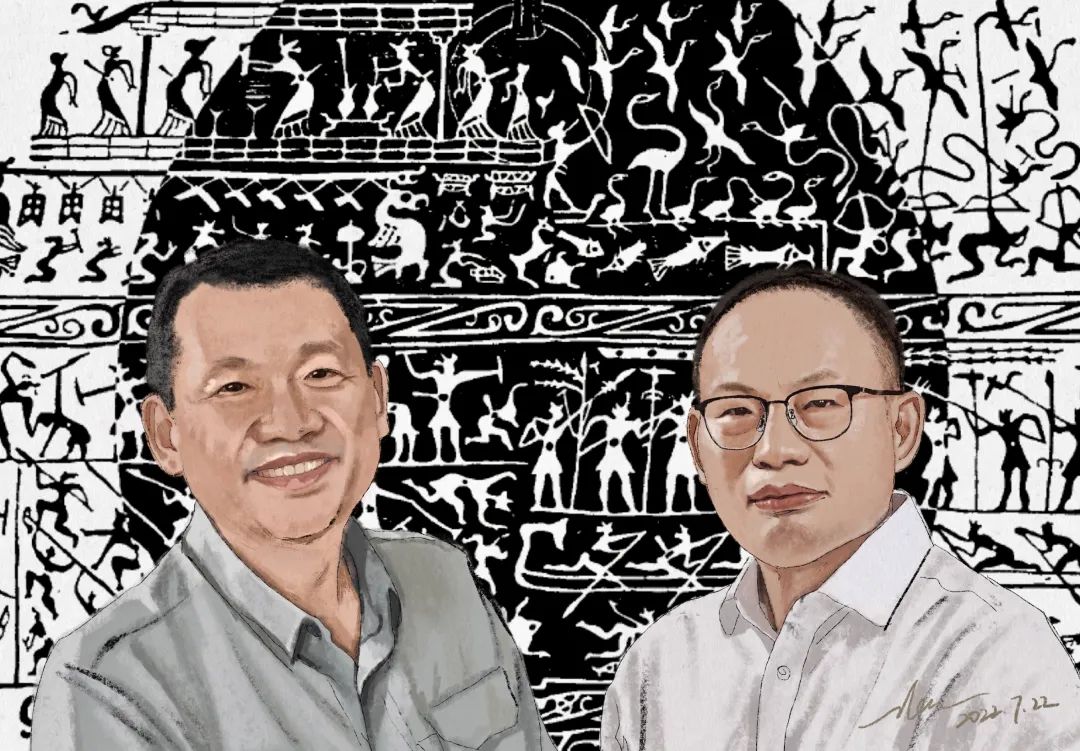
Rusic (right), Luo Xin (left)
Zhang Jing painting
In the new book "Hi: A Qin Officer and his World" by Professor Lusic University of Wuhan University, the owner of the Qin Tomb 11 of Sleeping Tiger Earth, an ordinary Qin official "Xi" became the main axis of historical narrative. Taking a happy life as a clue, "they were born, they suffered, they died," can best describe the life of ordinary Qin Dynasty.
Not just the Qin Dynasty, ordinary people in each era will experience suffering. Compared to describing the harsh violence of Qin Zheng, what the book wants to present is that as a natural person with flesh and blood is "non -humanized", through the structure analysis of Professor Luxic's good at, we can see Qin's society. The exquisite projection of the magnificent faces such as structure and power structure in the elite individual life.
Professor Luo Xin of the Department of History of Peking University and Professor Lusician as a live broadcast room of the ideal country of the country not long ago, talked about the new book "Hi: A Qin Officer and his World" together, and today shared the part of the "Shanghai Book Review" selected Wonderful content, complete playback can be watched in the video number "IMAGINIST".
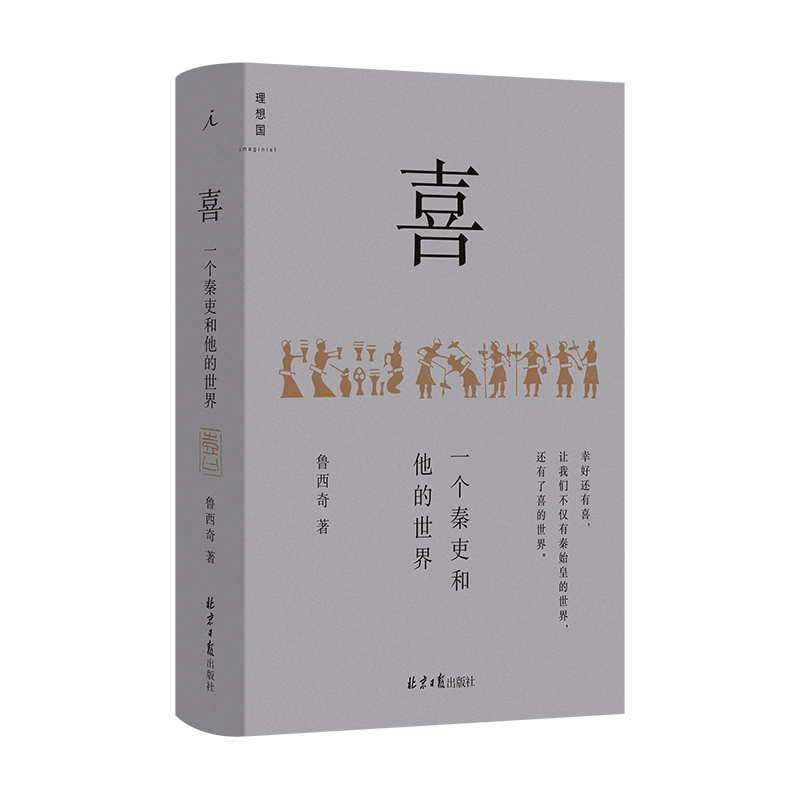
"Hi: A Qin Officer and his World" | Luxic
01.
I actually want to see myself more in the joy: What will I do at that time, what will I do in this era?
02.
Today's descriptions of the Qin Dynasty are often majestic, magnificent symphony, and "Hi" profoundly presents the complexity of the Qin Dynasty society and the complexity of the history of the Qin Dynasty.
03.
Historians have the responsibility to present multiple historical aspects. Those who are educated by a single side will have only a single understanding of reality, and reality is rich and complicated as historical.
Lusic and Luo Xin talked about Qin Li "Xi" and his world
Interview 亮 Zheng Shiliang
This article was first published in "Surging News · Shanghai Book Review"
01.
In the Qin official "happy",
See ourselves
Zheng Shiliang: How did Teacher Lu think of writing the book "Xi", can you ask you to talk about the origin of writing?
Lusic: Don't be deceived by the title of "Hi". It seems to be literary works or popular readings. In fact, if the comments are treated in the format of academic papers, it is an academic work. For me, this is actually a very professional research. It is in the papers of "Qin's County", "Name" and "Name" of the Early Chinese Early Past China "," The identity and social structure of the people under the Qin Tongzhi " Based on it.
As for why this study, I have three levels of consideration. First of all, from the perspective of historians, historical research is a craft, and we rely on not complete, scarce materials to explore certain issues of history, and understand certain levels of the world. In this sense, writing the book "Xi" is a great challenge to my crafts, because there are too few materials. For example, if you have a lot of reinforced concrete, you can build a large villa, which is of course great; if you only have some scattered brick and tile wood, you can also set up a beautiful small house. To my opinion, Display craftsmanship. At my age, I want to see that I have learned the history of my life. Can I use my craftsmanship to stitch those scattered materials and build a world of people unknown. This is the first level of consideration.
In addition, our historical research is actually a process of continuous questioning: how is a good question? From the initial research of a certain place name, the process of a certain event, and the history of a certain area, thinking about the problem will gradually go deeper and deeper. Over the years, a new question I have contacted is: What is the relationship between individuals and the world? This question has penetrated the level of how the world he survived. It is a higher level of problem in the field of historical professional research. Therefore, I write "Hi" to test myself, how I use those historical materials to think about this higher level of problem. This is the second level of consideration.
Finally, I want to find my own value and significance through this study. This reason is more abstract and macro. In fact, after doing historical research for a lifetime, I have been asking myself: What am I reading these books? Why should I write these articles? So, I joked, I actually want to see myself more in my hospitality: What will I do in that time, what will I do in this era? As for why it is the joy of the Qin Dynasty, this is very simple. Who can avoid Qin? When we learn ancient history, we generally start from Qin. If you want to write the Qin Dynasty, Qin Shihuang has already talked too much. Who else is good except him? In my opinion, the clearest and most possibilities is to like this person. This is the third level of consideration.
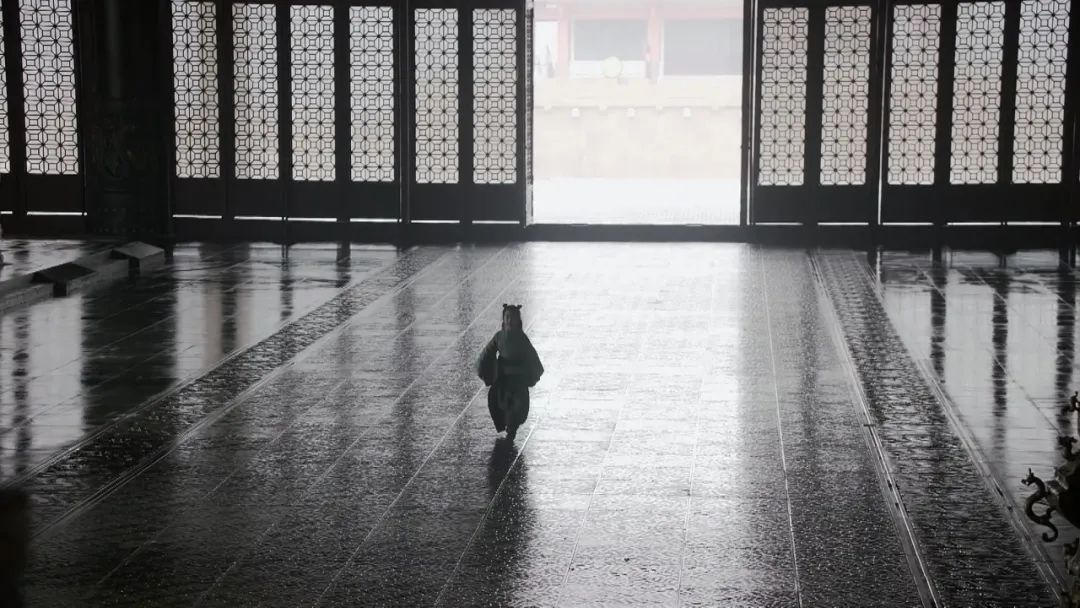
Zheng Shiliang: Along the topic of the previous, can Teacher Luo also ask Teacher Luo to talk about his views on "Hi"?
Luo Xin: Teacher Lu discussed the origin of "Xi" from three levels. In his first level, he said that he wanted to look at his craftsmanship, reminding me of Mr. Chen Yinke that he wrote "Liu Ru's Biography" to "learn from himself". In fact, even if the author does not say that, as long as we read the book, we can feel that the author presents his ability in many ways. Our generation of scholars, my academic career can be said to have entered the later stage. It is inevitable to make a summary to see how grasp of what we have taught for decades. Therefore, I not only understand the idea of Teacher Lu, but I often have similar ideas. I think the readers of "Hi" may feel more about the latter two levels that Teacher Lu said, that is, the ideological realm and academic realm of the work, and the same feeling: this is not the novice can write it out Instead, it is the result of many years of deep accumulation. For me, the form of "Hi" is very special, not only in Teacher Lu's past historical works, it seems very special. I think this is the first time in Chinese history. contribute. We all know that form is very important for literature and art, but it is also important for history, because form is an important manifestation of creativity. Whether it is a text style, a way of asking questions, and the layout of the articles, a good historical work must be in the form in the form. There are characteristics that different scholars will give different structures according to specific problems and specific materials. Of course, some people think that "Hi" is a biography of a character. In fact, it is not. It may start a bit. "Hi" is not a Qin history. In the past, there were many books about Qin Shi. Some of the materials involved. Of course, "Hi" will also be used, such as the Qin Jian of Sleeping Tiger and Zhangjiashan Hanjian. However, the issues that everyone pays attention to is completely different. "Hi" did not mention Qin Shihuang at all, let alone pay attention to the vulgar stories such as Zhao Ji and 嫪毐.
What Teacher Lu wants to reflect is the life of an ordinary person in the Qin Dynasty: what kind of house he will live in, what kind of streets he will walk, what clothes usually wear, how to work, what the rules and regulations are, and he is. What is the marriage and family situation -this is actually the life of each of us. In the past, we did not understand how ordinary people in the Qin Dynasty lived, and the first time "Xi" systematically presented the daily life of ordinary people in the Qin Dynasty, all of which were first -hand materials, involving material life, family life, and social life. Then to all aspects of political life, and smooth reading, it will not be as difficult as reading archeological reports and scientific papers. Don't say that such works are not written in the Qin Dynasty, and there are no other eras. Therefore, I think that "Hi" is a major contribution in form. Whether in the field of professional history or the field of public reading, it has reached a high level. If Mr. Lu wants to learn what he has learned, it should be said that his purpose has been achieved.
02.
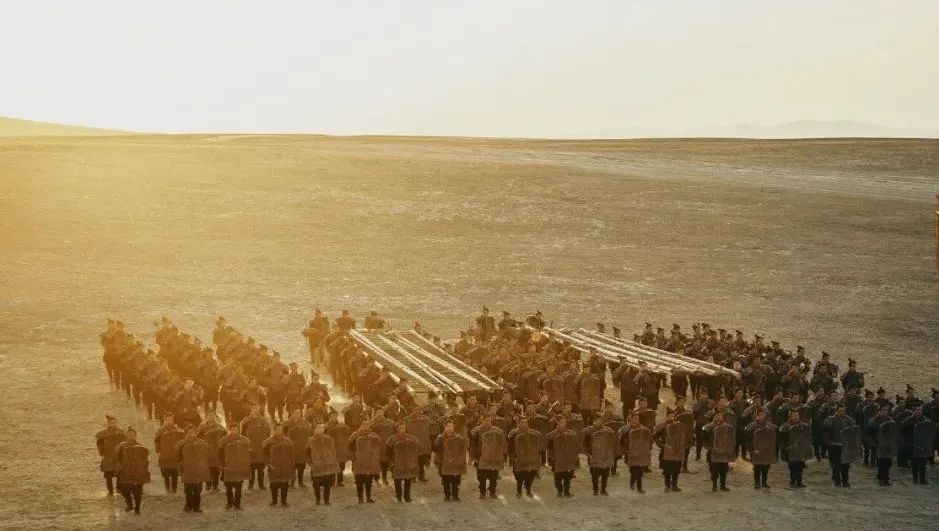
Among the historical materials,
Carrying an emotional experience that spans time and space
Zheng Shiliang: Teacher Lu mentioned earlier that the materials you can use are very limited. Based on this limit, how do you present all aspects of Qin Dynasty's daily life?
Luxic: Without the batch of Qin Jian unearthed from a sleeping tiger, I would not be able to think of the study of "Xi". The process of writing this book is first to ponder the process of these materials. However, unlike those scholars who have done soil literature research and Qin history research, although the materials have been reading for many years, I have been reading, but I have not written articles. When I write myself, in fact, there are many discussions about the interpretation of the materials. I have concentrated all the different opinions of each family, pondering which one is more reasonable, whether it can be improved, and then form my knowledge. Essence For example, the unearthed literature researchers picked up the past and rotten tiles, rubbed them, and then figured out what bricks and tiles were. And on this basis, which part of these brick tiles was originally in the house, can I fight them together to build and restore the structure of the house that have existed? For me, Qin Jian, Sleeping Tiger, provided me with imagination and knew the materials of another Qin Dynasty. More importantly, enabled me to use these scattered materials to make my cognition of history and me today. The cognition of the world at the point is combined.
Of course, the structure of these materials is very simple, and the work I do is to work hard to present the world of Qin in the eyes. No one can recognize all Qin, just like a joke I opened -no one can build the Afang Palace again. However, as we are in this world today, we ca n’t know the whole world. How can we know Qin? Compared to the grand issues of paying attention to Afang Palace and focusing on Qin Shihuang Mausoleum, I actually want to be a painter and depict other stories from another angle. You can see a few people vaguely. What clothes to wear and what are you doing.
In addition to being a painter, I also want to be a psychologist to imagine and experience the emotion and psychology of the person who span the time and space, which is very attractive to me. One of the most interesting parts of writing "Hi" is to feel the emotions carried in these materials. The book wrote that on February 19th of the twenty -four years of Qin Wangzheng, the Qin Army who was attacking the front line of the Huaiyang was shocked and Heifu wrote two letters to his brother and mother. Because there are a lot of disability in the original text, some of the contents are added. In the process, I will have more imagination. I believe this imagination is within a reasonable range. For example, I was shocked to tell his daughter -in -law how to take care of the elderly, and that his daughter should not go too far and listen to the words of the uncle when getting paid. When I wrote these, I felt that I was telling my family as if it was the difference between the difference between time and space and identity, and experienced the basic part of human nature. Sleeping Tiger No. 4 Qin Tomb No. 6 and No. 11 wooden 牍 睡 睡 睡
In the end, what I want to say is that when I write "Hi", I can feel a faint fear at all times. The first fear is that the material is not enough. More than a year ago, I was joking. I was really afraid of the world I wrote, and then said, "This is not the world I know, this is your world of Ruisic." The second fear is, it is I can still feel the threat brought by Qin through time and space, which is also real. These emotional experiences may have surpassed the scope of historians. Will a craftsman consider to give himself a life? My own life is in "Hi", and you can feel the existence of Ruisic at all times. Not only did I look at the world of Qin through a happy perspective, I also missed many other identities. This may be the limitations of "Hi", but this is also the most satisfied part of this book.
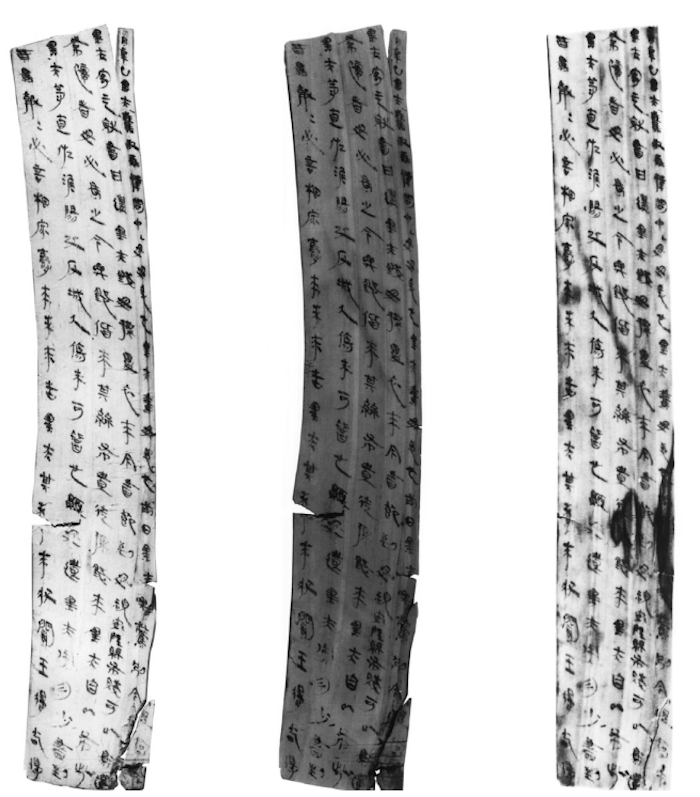
Hi -year -old "Editorial Age"
"Qin Jianzhang Collection" One, Wuhan University Press, 2014
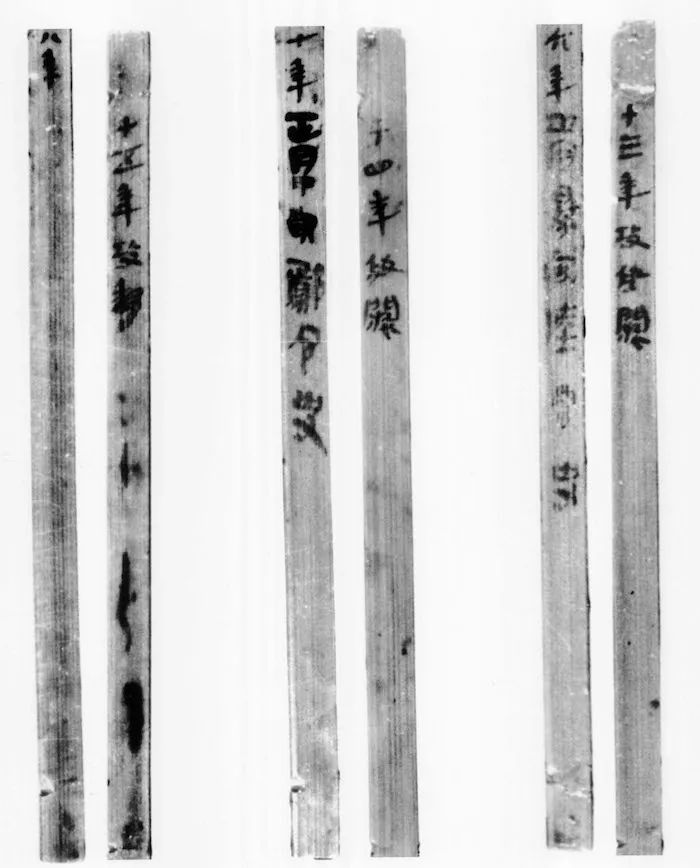
Zheng Shiliang: Teacher Lu said that when he wrote, he was always afraid of the materials. Not only scholars studying the history of Qin and Han dynasties, for researchers in the history of Wei, Jin, Northern and Southern Dynasties, materials are probably a headache. Regarding the limitedness of materials and the feasibility of research, I would like to ask Teacher Luo to talk about it.
Luo Xin: There are always relatively small materials or less. In the absolute sense, materials are never enough. But the problem is not here. The ability of a professional historical worker is actually reflected in how to use materials, especially the materials that everyone uses, what issues are used for materials, and how to use materials. "Hi" uses historical materials that scholars who study Qin and Han history, and strictly follow the basic principles of using these historical materials. This is the threshold for all professional historians. In terms of, it is nothing.
What surprised me was that Teacher Lu used materials differently from others. I dare not say how other colleagues are, because I have limited understanding, I did not expect that I could use materials like this. It can be seen in several aspects that "Hi" is extremely special in the understanding, use of materials, and the refining of problems. I will give an example, such as the description of the family life of "Hi" using a lot of Japanese books. Now as long as the scholars who read Qin Hanjian know that the material of Japanese book is very special, but how to use it is a problem. I did not expect that he could use it like this, and it could explain the problem in this way. Some materials were used, some materials were used, and some materials were used sideways, each seeing its effect.
I said earlier that the form is important for historians. What materials and how to use materials will also restrict the form. Teacher Lu is really admirable in these aspects. I want to remind you of peers -especially young historians and students of the Department of History -Pay attention to Teacher Lu's use of these materials, which is different from what we are used to. This is exactly creative.
03.
See the richness of history,
I also see the complexity of reality
Zheng Shiliang: Teacher Luo has repeatedly mentioned that "Hi" is very special in form, so where do you think it is special about Teacher Lu?
Luxic: Although the subtitle of "Hi" is "a Qin official and his world", as I said in the preface of "Hi", what I want to write is not the history of life. In fact, there is one of the whole book. A clear structured tendency -structural analysis is my strength, and my own academic foundation is the study of geographical space. The entire book is divided into three parts, the first part is "Sri Lanka", the second part is "Guizhou head", and the third part is "as an official". From the natural nature of human beings, to human society, to human’s’s National or politician, step by step, the entire writing framework is very structural. I want to describe a society composed of people with various identities. Everyone has to live along the path given by the country.
In fact, what I described is not like a person's life, the opposite, to a large extent, a process of informalization. In the first part, he is a natural person with flesh and blood, with his own emotions, with parents, wives, and children. In the second part, this natural person with flesh and blood was added by the state, either becoming an official, or a Guizhou head or apprentice. This identity slowly faded his natural nature. He had to assume the obligation corresponding to this identity, relying on this identity to obtain social status and seek economic benefits. I describe the social structure based on identity. In the third part, there are very few content involving joy, and he is a person who is a young official in the county. I imagine how I work in a county government and then describe the composition of the county court. Speaking, he is more willing to use "power structure". In the first part, what I described in is actually a space composition. See what kind of joy is, what kind of home he is in Anlu City, what kind of yard is, how many people are, in accordance with the Qin's decree, in accordance with the Qin's decree, in accordance with the decree of the Qin, in accordance with the decree of the Qin, and What do these people have? In the second part, what I described is the person in the space, and gradually evolved into a person under the social structure in the second part. In the third part, it is in a power structure, and the natural nature of joy gradually disappears. What I am talking about is actually evolving from a natural person with flesh and blood to a symbol of a bureaucracy.
Zheng Shiliang: Teacher Lu talked that "Xi" seems to be writing a little character story. In fact, it really presents structured thinking and writing. So, as the advocate and practitioner of narrative historical writing, what do Teacher Luo think of such writing?
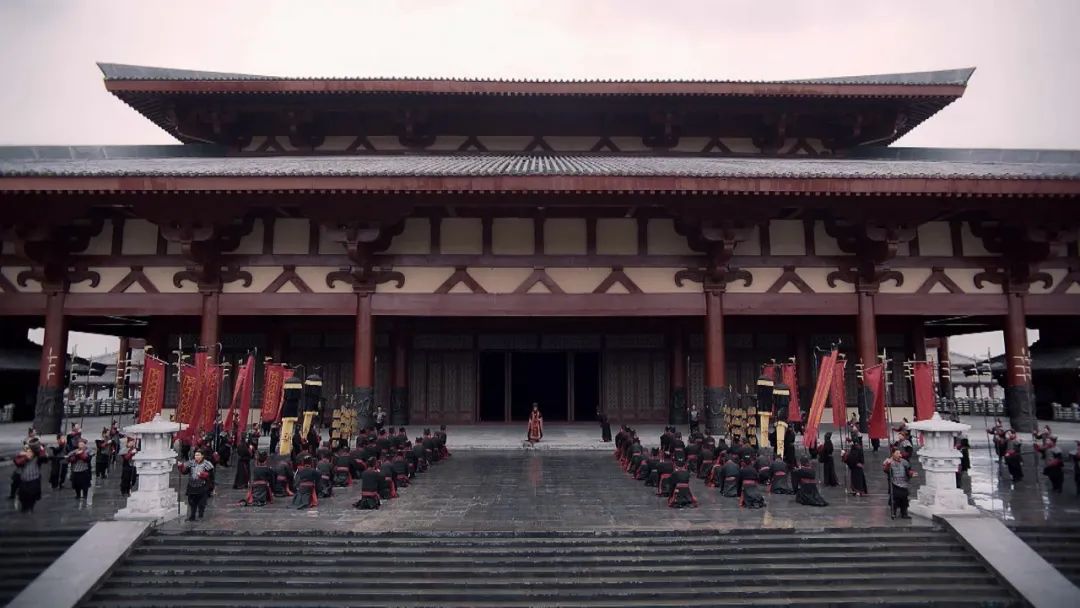
Luo Xin: I don't think the historical works that read well are the types of storytelling, just like "Historical Records" or Herodod. In fact, in terms of existing historical works, many model works are about social structures, political systems, rules and laws, and are also very interesting to read. Not only are experts read, everyone also loves to watch. The key is that the problem you express is whether others are willing to care. Of course, the knowledge involved in "Hi" is not mentioned, but it is combined with such a character like Xi to expand little by little. The book first shows the bone of Xixi, letting the reader see him because he is too much because he is too much because he is too much because he is too much. High, the coffin can't be installed, it is stuffed into it, and then what the happy life is like, and then present the whole society he is in.
Sleeping Tiger Tomb No. 11 Tomb (Pleasant Tomb) Coffin Bone Bone Colonial Bone Bone Bone Bone Bone and Relicate Earthwriting
We often say that Qin is an era of extremely inequality and an era of extremely cruel oppression. However, what exactly does it look like? Under the oppression, how did people live? Even in the darkest and fearful era, what kind of emotions and lifestyles do people have each? I wrote in the book how to write a letter with the black husband. Teacher Lu also made a special translation and supplement, so that you can see the local characters in a while. What kind of like, after a while, return to the part, so repeatedly, the world of joy becomes three -dimensional, rich, and interesting -even if you feel fear, that is interesting, because this Qin Dynasty's world is no longer like your past as your past I thought it was so simple.
Teacher Lu asked in the preface: In which era you are willing to live, are you willing to live in Qi or Qin Kingdom? Because of such a detailed description, you can understand why the author has such deep doubts and the fear he himself. For more than two thousand years, when we went to study that era, we still felt shuddering. Today's descriptions of the Qin Dynasty are often majestic, magnificent symphony, and "Hi" profoundly presents the complexity of the Qin Dynasty society and the complexity of the history of the Qin Dynasty. Let me give it an example. The book talks about the difference between the heads of the new and old and old Guizhou. Behind this is the conquest war launched by Qin, eliminating other countries one by one, so there is such a difference. Our narration of this process today is often simplified, that is, the united war, but if the other side of history is presented, we will know that its appearance is very complicated. Maybe you can romanticize it, but it also has ordered it to be ordered The side of fear and pain.
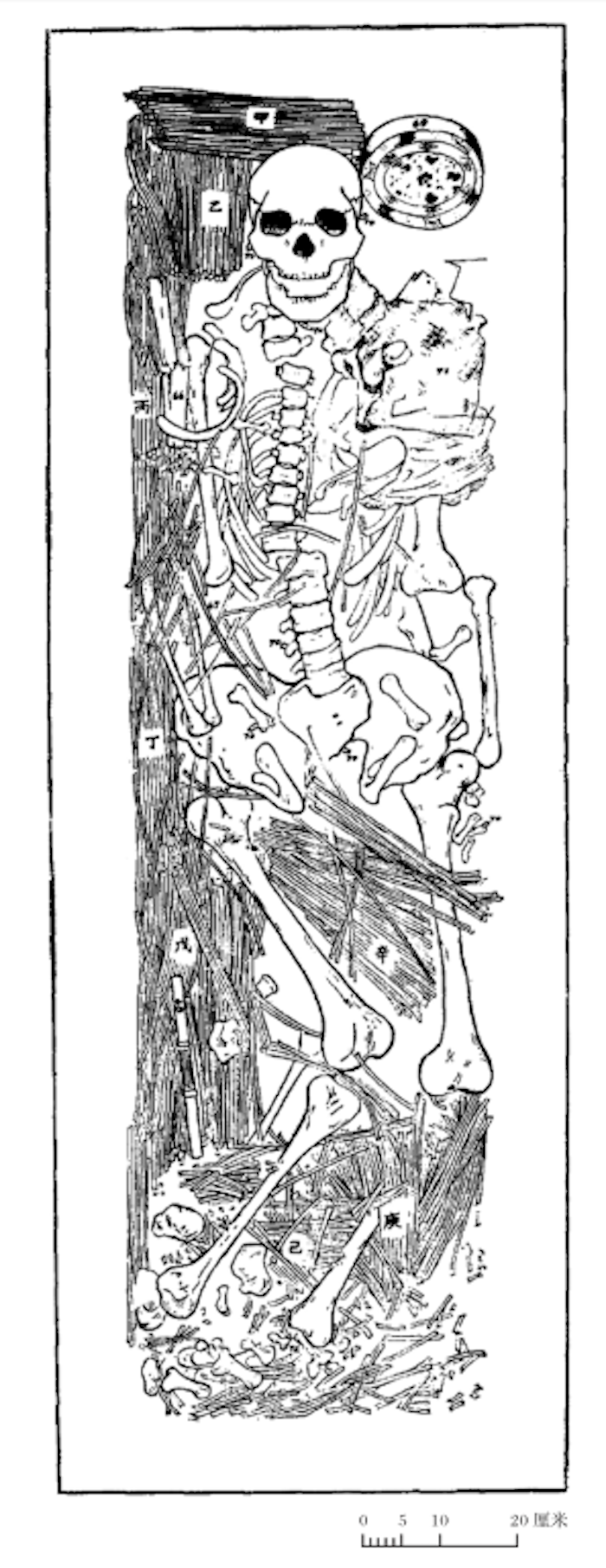
Therefore, today's historians have the responsibility to present multiple historical aspects. Those who are educated by a single side will have only a single understanding of reality, and reality is rich and complicated as historical.
04.
The living state of ordinary people
See the historical background of the Great Age
Zheng Shiliang: So, what is the living state of the ordinary people of the Qin Dynasty represented by the Xixi Institute, can I ask Teacher Lu to talk about it?
Lusic: In fact, this question is a bit difficult to answer, it brings me a lot of confusion. The first confusion is that joy is ordinary people? According to the title of identity in that era, he was a "official", not "elder officials", but "young officials". Some readers who love to read history cross the novels on the Internet say that joy is equivalent to today's grass -roots civil servants. I don't know who the so -called grass -roots civil servants include. However I went to Nan County to make a subordinate. Responsible for the review of the case. Will we regard the judicial director of a certain county today or the inspector of the county to review the case as a grass -roots civil servant? I don't think it is. Furthermore, in the book, I wrote the three main identities of the officials, the head of the Guizhou, and the Di Lishi at the time. It is said that the head of Guizhou is ordinary people, and there should be no problems. What about the officials? When they are not as officials, they are the heads of Guizhou, but the high -ranking officials of the aquatic level actually have a lot of wealth, just like the records of Yuelu Jian. Is it an ordinary people? As for the apprentice, including the prisoners and the ministers, that is, the prisoner and the official slavery, those ordinary people are probably unwilling to do it with them, although they are likely to be reduced to the apprentice tomorrow. Regardless of whether they are died, the head of the Guizhou or the apprentice, their living conditions are large due to the difference in identity. However, these people, whether they are died, Guizhou or apprentice, are ordinary people for Qin Shihuang.
Therefore, aside from the confusion in front, you have to ask me not to be an ordinary person. We change to an angle -in the eyes of the Emperor, everyone is all ordinary people. If you continue to ask me, what exactly does the ordinary people in the eyes of these emperors look like? I would say that it was an era of identity system. Every ordinary people have identity. Different identities determine your survival state and the basic trajectory of life. You can work hard to kill the enemy. After that, you can enter the official class and get the corresponding land and wealth. However, you may also retire, and be reported by the same Wu, and then executed by the punishment, or because of the crime of anti -Qin, the family is reduced to Li Chen.
In fact, no matter how heroic you are, you have almost no chance to enter the real nobility group, that is, those noble groups with sealed land and food. This society, which is given by the state, and various people living in this social system, is the basic living state of ordinary people that I want to describe. The closer you go to the Qin Dynasty's bureaucratic system, the more you can enjoy fame and wealth. If you do not want to fight against Qin, you will violate the law of people, or be executed, or be mixed to Bashu.
Because the propaganda of "Hi" has a phrase "they are born, they suffer, they died, they die", several friends talked to me about this book and thought that there would be many ordinary people in the book in the book how to suffer. Express Qin Zheng's harsh violence. Actually not. I joked with them: The title is called "Hi", can I not write hard? The most important thing is that suffering has always been the origin of ordinary people, as if "Frozen Water Song" said, "Wash frozen water, what if I am! Too much scattered, what if I am!" The suffering is the meaning of the topic. For the great cause of the unity of the Daqin, death has also become a matter. For a dynasty, the people of the Han Dynasty were not suffering, the people of the Tang Dynasty were not suffering, or the people of the Ming Dynasty did not suffer? Every era is suffering and dies. Therefore, I wo n’t write much more.
Zheng Shiliang: Teacher Luo Xin will publish "Long Yu Life: A Northern Wei Palace Madam and her era", and it is also very exciting to see the road of the big age through a small person. Can I ask two to talk about what works have their research ideas and writing methods?
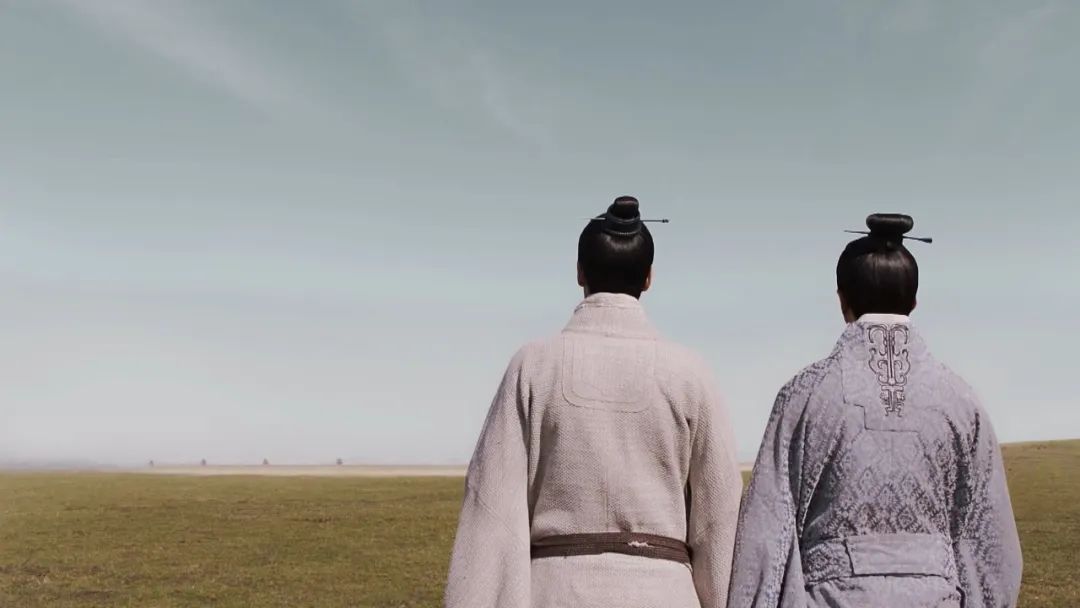
"Long Yushu: A Northern Wei Palace Madam and her Time" | Luo Xin
Luo Xin: There is an article that has a great influence on me, and it has continued to this day. I still relive from time to time, that is, Mr. Tang Changzhang's masterpiece "The Cao Weishi Family System in Jinshu · Zhao Zhuan", We are familiar with the history of the Wei, Jin, Northern and Southern Dynasties. The article is just thousands of words. Now many academic journals may not be published, it will think it is too short, but its realm is high, deep in thinking, profound care, and pure emotion. level. It is about the influence of the hereditary soldiers' family system that has risen in the late Han Dynasty on an ordinary person. When I was reading in the early years, I remembered Lu Yao's novel "Life". Later, it was made into a movie. Efforts to become the story of the city.
The famous "Red and Black" also tells similar stories. How to work hard to cross the class where he is, how to desperately break free from the constraints of the state designed and protected by law to his life. Many people can't feel this restraint, and for some of them, the pain brought by this shackles is unimaginable. Only by understanding this can we read this article. Of course, Mr. Tang also started from this point, that is, the "Zhao Zhixu" written by the son of Kang Kang in the text. The predecessors have established many great models, and it is worthy of our learning. This is what I want to mention.
Ruisic: This problem reminded me many years ago. At that time, Mr. Luo came to Wu Da. Teacher Wei Bin arranged for me to talk to Teacher Luo, and a question called "Weak", because everyone was talking about "The Weak's Weak. Weapon. I want to find meaning for this character, which may be affected by this. In terms of ideology, I also think about which historic genre can I be included in this book. At this time, you will think of "Monteou", "Cheese and Magnata", "Battle at Night", "Flower Magic Fluters", and so on. I want to ask me if I consciously learn these works. I can't do it. How can I learn it? You can only work hard to do your own research. But if you think about it, it may have some impact. Teacher Luo mentioned earlier that I used Japanese books, which was indeed my proud pen. Sometimes I go to the countryside and see people fortune -telling. I am curious and say: You can calculate me. People ask: What do you want to count? How I answered just reflected my concept. The reason why the use of Japanese books is related to this experience, which is also related to the works mentioned earlier. I see from these best scholars that a historian must ponder materials, but even more thoughtful ways behind the materials.
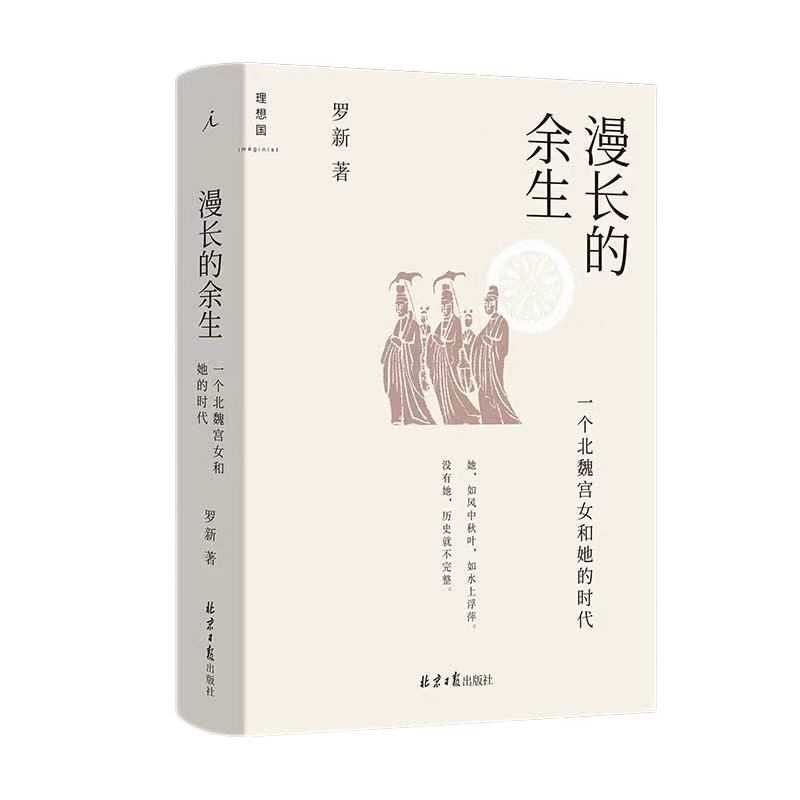
In addition, I read the "Did Paris Burning in Paris? 》, The translation is excellent, it is actually presenting history in a narrative way. I was used as a leisure book to past it. I felt very interesting and got some inspiration. Including Mr. Chen Yinque and Mr. Tang Changzhang's articles, I have been seriously pondering. However, when a scholar has reached my age, it is unclear what the research thinking has been affected. If you think of these things too clearly, you can probably retire. I have retired for a few years, and I don't want to think about it for the time being.
This article was first published in "Surging News · Shanghai Book Review",
Welcome to download the "Surging News" APP subscription.
*Matchmaking and blocking sources: "Daqin Fu" and "Heroes"
秦 "Hi: A Qin Public and His World"
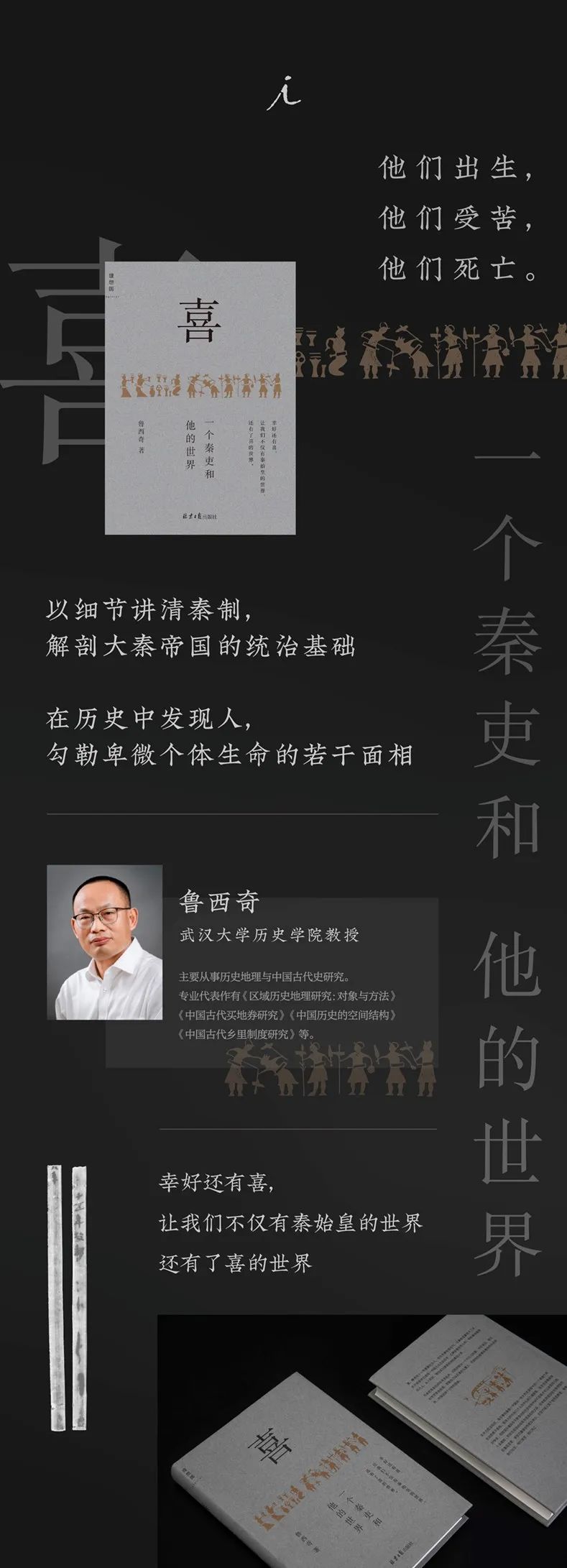
- END -
If there is a clue of pension fraud, Panyu calls you to report it quickly!

In order to implement the relevant work requirements of the central and provincial...
In the first half of the year, the city's "two demolition and one increase" has completed 641 rectification points

In the summer season, walk into the community park of Haitong Street in Jinjiang D...